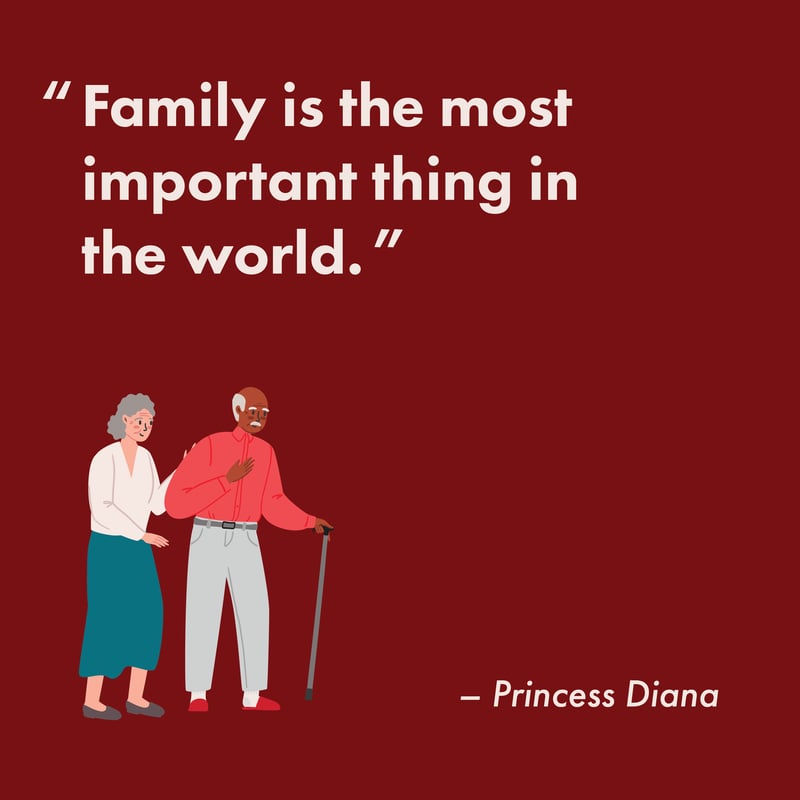
Caregiving stress can lead to ‘caregiver burnout’. Use our quiz to spot the signs and learn how to cope if you're feeling overwhelmed.
Am I suffering from ‘Caregiver Burnout’?
How to spot the warning signs, prevent and deal with this selfless condition
‘Caregiver burnout’ typically occurs when caregiving responsibilities become overwhelming.
Those who experience it either lack support or are managing too much all at once – such as balancing caregiving with work and/or personal life (like looking after a family) - often with no outlet through which to relieve stress. This juggling act can cause physical, emotional and mental exhaustion, leading to burnout.
.jpg?width=566&height=377&name=national-cancer-institute-BxXgTQEw1M4-unsplash%20(1).jpg)
Our guide aims to help caregivers overcome challenges. If you believe you, or someone you know, might be struggling to look after a vulnerable person then we’re here to support with tips for recognising caregiver burnout symptoms (and the stages) and self-care. We also have insights on preventing this debilitating experience.
Take our caregiver burnout quiz for personalised advice, empowering you to prioritise your health and well-being. Whether you're a family member, professional, volunteer or informal caregiver like a friend, this guide is here to assist you on that journey.
In this article, we'll explore
-
What is a caregiver?
-
What is caregiver burnout? How to recognise the symptoms
-
Caregiver burnout quiz
-
Tips to help caregiver burnout
-
Caregiving quotes to boost your morale
What is a caregiver?
A caregiver assists, supports and cares for another individual who can’t fully look after themselves (whether due to illness, disability or age-related issues).
This includes many aspects of daily life like personal care (from bathing to toilet trips), household tasks, transportation (to hospital appointments, for example), medical needs, emotional support and companionship. This role is often hard work, involving selflessly dedicating time, energy and resources to ensure the safety, comfort, and dignity of the individual receiving care.
What are the different types of caregivers

Family caregivers
Relatives provide (often unpaid) care and support to a loved one – like a partner, child or parent. Age-related deterioration (like dementia) is frequently a cause, but familial care also extends to supporting someone with a disability, which can happen at any age.
It often naturally falls to a family member to ensure the person they care about lives the most comfortable and enjoyable life possible, taking on most of or all daily tasks. Too often the family caregiver is in the ‘sandwich generation’, juggling caregiving with looking after young families and/or managing a full-time job. In turn, these caregivers face some of the harshest symptoms of related burnout.
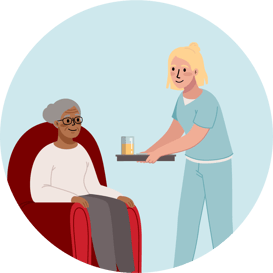
Professional caregivers
Professional caregivers are specially trained and employed to tend to people in need. They usually work as one of the following:
- Registered nurses
- Licensed practical nurses
- Certified nursing services
- Home health services
- Personal care aiders
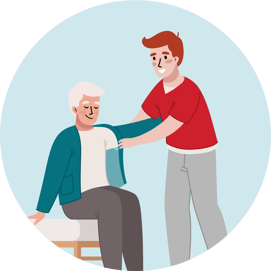
Volunteer caregivers
Volunteer caregivers are so passionate about helping people in need, they offer their free time. This might be via charities, religious groups or social service agencies. Companionship, respite care and entertainment are just some of the ways they brighten the days of those they care for.

Informal caregivers
Informal caregivers typically provide care and support on an unpaid, casual basis. This might be to a friend or neighbour. Unlike professionals, informal caregivers don’t receive formal training, qualifications and compensation for their services – but this doesn’t detract from the life-enhancing role they play.
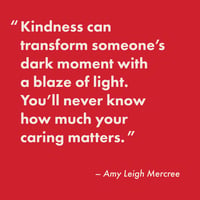
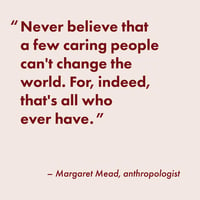
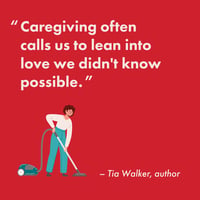
What is caregiver burnout, and how does it affect mental health?
‘Caregiver burnout’ (also known as ‘caregiver stress syndrome’) is a specific kind of burnout that refers to the emotional, mental and physical exhaustion that comes with looking after someone who can’t care for themselves due to illness, disability or another condition. Anyone suffering from the condition should seek assistance as soon as possible.
Despite best intentions, the caregiving role can be incredibly demanding and stressful. It can trigger emotional strain, financial pressure, social isolation and neglected self-care.
Unpaid carers face particularly significant challenges as they receive minimal monetary support while balancing many responsibilities at home and in work.
The mounting weight of caregiving, coupled with the demands of daily life, can quickly become overwhelming, ultimately resulting in burnout. The symptoms include fatigue, trouble sleeping, irritability, anxiety and, in serious cases, depression. Carers (or those close to them) must recognise the signs of caregiver burnout. From here, practising self-care to prevent further decline in their wellbeing or seeing a GP is critical to recovery.
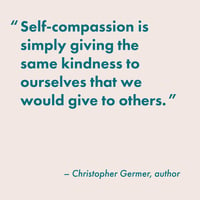
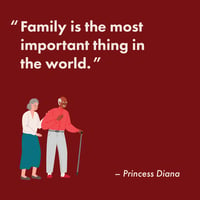
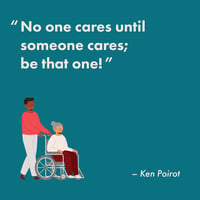
What are the symptoms?
How caregiver burnout can affect mental and physical health
Caregiver burnout typically progresses through several stages that increasingly worsen and vary by person.
Early warning signs
In the early stages, carers may experience mild symptoms like increased stress levels, irritability and tiredness. Feelings of overwhelm start to mount up.
As a caregiver, you might notice yourself snapping at other people, feeling tired or sleeping erratically, and feeling low in mood – but dismiss these as temporary or standard stressors.
To alleviate this, introduce a wind-down routine before bed. Cut out caffeine and avoid scrolling through your phone or watching TV as the blue light can stave off sleep. Introduce nourishing foods into your diet and move your body, even if it’s a stroll once round the block.
Mounting stress and fatigue
As caregiving responsibilities intensify amid juggling other responsibilities, your stress levels might rise. No matter how many hours of sleep you get, you can’t shake the tiredness. Rather than managing multiple tasks, it feels like you’re fighting fires as unexpected crisis after unexpected crisis occurs. You’re working extra hard to manage the support of your loved one or person in your care, so there’s no chance you’re meeting your own needs.
You might start to feel physically and mentally drained, leading to increased tension, frustration and difficulty coping with even the simplest daily tasks.
Loss of personal identity
Your duties might leave you feeling like ‘just a caregiver’. Don’t worry, you’re not alone. Many people experience low self-esteem and lose sight of who they are as their time is consumed by looking after someone else. With these burdens, it’s common for mental health to decline. You might sacrifice your hobbies and catch-ups with friends in channelling your time and energy into caregiving. In turn, you might feel isolated and disconnected.
You deserve to feel looked after, too. Confide in a friend and arrange cover to go for a catch-up – it could be every Monday over the phone or a coffee. You might only be out of action for an hour or two but return feeling brand new. Laughter has healing powers.
Increased feelings of guilt and resentment
It’s natural to feel guilty and resentful when you’re devoting so much to another person. You might question your ability to provide adequate care, feel awful that you’re in a negative headspace or even start to blame the person in your care for the impact they’re having on your life.
If you recognise these resentful feelings, practice self-compassion: this reaction is more common than you think, and it doesn’t make you a bad person. Instead of feeling guilty, recognise this as one of the symptoms of caregiver burnout and take time for you. It’s easy to forget to do this, so try to see it as taking responsibility for your emotional health, to help you be the best carer you can be.
Complete burnout and exhaustion
If caregiver burnout goes unchecked, you might reach a state of complete physical and emotional exhaustion. Feeling overwhelmed becomes a near-constant sensation. All hope is gone, and you simply cannot cope, resulting in a breakdown.
Carers can experience mental symptoms associated with depression, anxiety, sleep issues can escalate into insomnia and physical ailments like losing weight can also occur. In this case, it might not be possible to continue providing care without medical attention and significant support from a mental health professional.
Unfortunately, it can take time to recover from complete burnout, but professional, life-changing support is available – for you and, when it comes to the person in need, alternative sources.
Quiz: Find out whether you are suffering from caregiver burnout
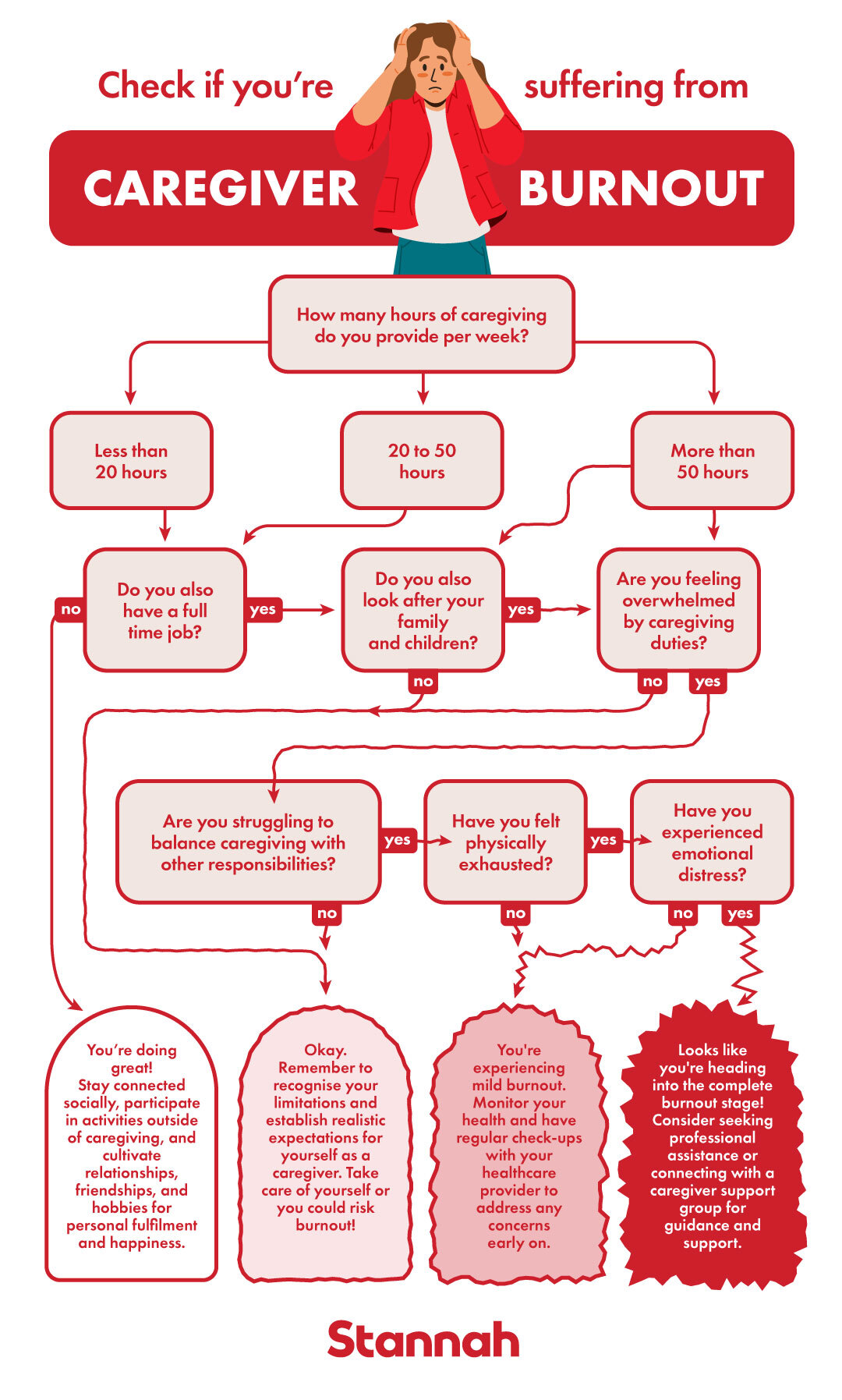
How to prevent caregiver burnout
1. Prioritise yourself
Take time for activities that nourish your physical health, mind and spirit. From eating well to meditating, starting a new TV series to getting out into the sunshine, take a moment to do what makes you happy.
2. Set realistic expectations
Recognise your limitations and be realistic about what you can achieve. Feel assured that, as wonderful as you are, you’re not a superhero. Caregiving is hard work. You can’t do everything and it's okay to ask for help when you need it.
3. Take regular breaks
Find opportunities to recharge and rejuvenate. It could be a short jog, calling a friend, taking a nap or sitting in the garden.
Is there a city you’ve always wanted to explore? Book a long weekend away. It needn’t be far – the UK offers ‘staycations’ that are so lovely they could be abroad.
4. Communicate openly
Communicate freely and honestly with your loved ones, healthcare providers, and other support groups involved in caregiving. Express your needs, concerns, and boundaries so they can offer appropriate support.
5. Delegate
Recognise that you don't have to do everything yourself and allow others to lighten your load.
Is there a trusted loved one you can call upon? If you have the funds available, a professional caregiver will give you peace of mind.
6. Stay connected
Lean on your friends and engage in shared interests, from shopping to great restaurants. Cultivate these relationships. Seek out social events or invite them over.
7. Seek support
Friends and family members are invaluable. But like minded communities –caregiver support groups, online forums and charities, for example – are uniquely placed to offer emotional support and practical assistance.
You might learn coping strategies by sharing your experiences with others who understand. They might connect you with professionals who can offer respite care tailored to your loved one’s condition to relieve some of the pressure.
8. Monitor your health
If you notice a decline in your physical and emotional health, seek expert help. Consult your GP or contact a charity like Samaritans. It’s important to address any concerns early on.
Talking to someone objective, judgement-free, in counselling could work wonders. Cognitive Behavioural Therapy (CBT) can also help combat negative thoughts.
Remember, seeking help is not a sign of weakness but a proactive step towards restoring balance in your life.
20 quotes about caregiving to boost your morale
1. "To care for those who once cared for us is one of the highest honours." – author Tia Walker
2. "Caregiving often calls us to lean into love we didn't know possible." – author Tia Walker
3. "Never believe that a few caring people can't change the world. For, indeed, that's all who ever have." – anthropologist Margaret Mead
4. "The simple act of caring is heroic." – actor Edward Albert
5. "Caring for our seniors is perhaps the greatest responsibility we have. Those who walked before us have given so much and made possible the life we all enjoy." – U.S. senator John Hoeven
6. “There are only four kinds of people in the world – those who have been caregivers, those who are currently caregivers, and those who will need caregivers.” – former first lady Rosalynn Carter
7. “My caregiver mantra is to remember: the only control you have is over the changes you choose to make.” – author Nancy L. Kriseman
8. "When you are a caregiver, you know that every day you will touch a life or a life will touch yours." – Unknown
9. "Caring about others, running the risk of feeling, and leaving an impact on people, brings happiness.” – American rabbi and author Harold Kushner
10. “Caregiving is a constant learning experience.” – MD, Vivian Frazier
11. “One person caring about another represents life’s greatest value.” – author Jim Rohn
12. “Without a sense of caring, there can be no sense of community.” – author Anthony J. D'Angelo
13. “Caregivers attract caregivers and live in a community of love. They are energized by their caring, fulfilled, and they love life.” – author Gary Zukav
14. “Never believe that a few caring people can’t change the world. For, indeed, that’s all who ever have.” – anthropologist Margaret Mead
15. “Care is a state in which something does matter; it is the source of human tenderness.” – psychologist Rollo May
16. “Too often we underestimate the power of a touch, a smile, a kind word, a listening ear, an honest compliment, or the smallest act of caring, all of which have the potential to turn a life around.” – author Leo Buscaglia
17. “The closest thing to being cared for is to care for someone else.” –from book The Square Root of Wonderful by Carson McCullers
18. "Caring for others is an expression of what it means to be fully human." – Former United States Secretary of State, Hillary Clinton
19. "The greatest gift you can give to others is the gift of unconditional love and acceptance." – motivational speaker, Brian Tracy
20. "Caregiving often gives us a chance to perform a role we never knew we could." – Dr. Paula Smith
Towards better coping skills
It's important to know that feeling this burnout is not a sign that you're a bad caregiver - or a bad person. Looking after loved ones, or people with serious health conditions, can cause extreme stress for anyone. You’re only human so, if you spot the signs, be kind to yourself. This is not uncommon so don't judge yourself too harshly.
Give yourself permission to do something for your own wellbeing - even if it's taking just an hour for yourself. And keep a note of our tips: these will help you develop better coping skills that will help you and the person in your care.
Stay up to date
Latest Blogs

Whole Home Comfort with Stannah and HSL

Dame Zandra Rhodes x Stannah: When accessibility meets style
Could more people benefit from home adaptation support for hidden disabilities?
50 years of Stannah Stairlifts – A milestone grounded in purpose

BBC’s Dr Punam Krishan reveals a little-known Parkinson’s symptom to watch for...

Are you at risk of falling? Dr. Punam Krishan’s simple 12-second test could tell you...

Snore Wars: Could sleeping separately be the secret to a better night’s rest?

Proud to carry the Made in Britain mark!
Stairlifts made for you
All our stairlifts whether straight or curved are customised to suit you and your home so call now to arrange a visit to get your FREE personalised quote!
